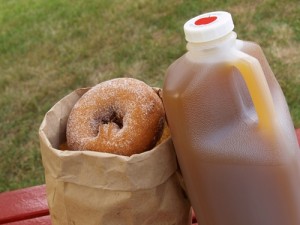Why are we having this conversation about BPA in packaging anyway?
Most likely if you've listened closely to the articles health magazines or reports are featuring, you'll know that there is controversy arising in the packing supplies industry as food companies and government officials square off over the effects and use of a synthetic additive in food packaging, Bisephenol-A, or more commonly referred to as BPA. Bisephenol is a "synthetic estrogen used to product polycarbonate (PC) polymers and epoxy resins."
Since the 1960s, BPA has been used in the manufacturing of plastics; it is most commonly found in food and beverage containers, but can also be found in other consumer goods.
However, a study in the early 1990s accidentally discovered that BPA can, in some instances, leech into food or beverages. This exposure to BPA in packaging is a concern because of the potential health effects of BPA on the brain, behavior, and the prostate glands of fetuses, infants, and children. Additional research suggests a possible link between BPA and increased blood pressure.
Countries in Europe have banned its use in products for infants and children and, while the FDA has not banned its use in the United States, 11 individual states have laws on the books banning the use of BPA in products for infants and children.
"The dangers of BPA are well-documented, and we must do everything we can to ensure that both the factory workers who package food, and the people who consume our food, are safe," Representative Lois Capps of California said in a statement.
However, despite attempts by members of Congress and the public to ban BPA's use in all food packaging, the FDA officially determined that in the very small doses detected to have leeched, the additive is safe; this determination, they say, is based on the review of hundreds of studies.
BPA in packaging is safe, say many health reports
A recent Health Canada report found that the exposure to BPA in food packaging is not expected to pose a health risk to the general population, according to Plastics Today. The study examined exposure to the substance among pregnant women and found "significant" results proving the substance is not notably harmful. But,  you only need to look back at the timeline created from Canada's research on this topic to see the following changes in how health officials perceive this additive:
you only need to look back at the timeline created from Canada's research on this topic to see the following changes in how health officials perceive this additive:
- 2010 - Canada becomes the first leader prohibiting any activity within the manufacturing to sell cycle of baby bottles containing the additive.
- The reach of the prohibition continues to baby bottles, toys and other products used around children to limit their exposure.
- 2012 - Health Canada revisits the studies of the additive and reports that "dietary exposure to BPA through food packaging is not expected to pose a health risk to the general population, including newborns and young children."
So, what can you do, if you're concerned about BPA in packaging?
- Use BPA-free products. Many products today have labels saying that they are BPA-free. Do keep in mind though that, if a product isn't labeled, some, but not all, plastics marked with recycle codes 3 or 7 may be made with BPA. Much of the BPA-free opposition, however, says that the plastics industry is using "regrettable substitution" when it removes BPA from its mix, meaning that it has been most likely replaced with another chemical.
- Cut back on your use of cans. Most canned foods are in containers lined with BPA-containing plastic resins.
- Avoid heat. The National Institute of Environmental Health Sciences, part of the National Institutes of Health, advises against microwaving plastics or putting them in the dishwasher, because the plastic may break down over time, allowing BPA to leech into foods or beverages. The same goes for not drinking out of a water bottle left in your hot car all day.
- Use alternatives, when possible. Using glass, porcelain, or stainless steel containers for hot foods or beverages can help prevent any potential plastic breakdown.


